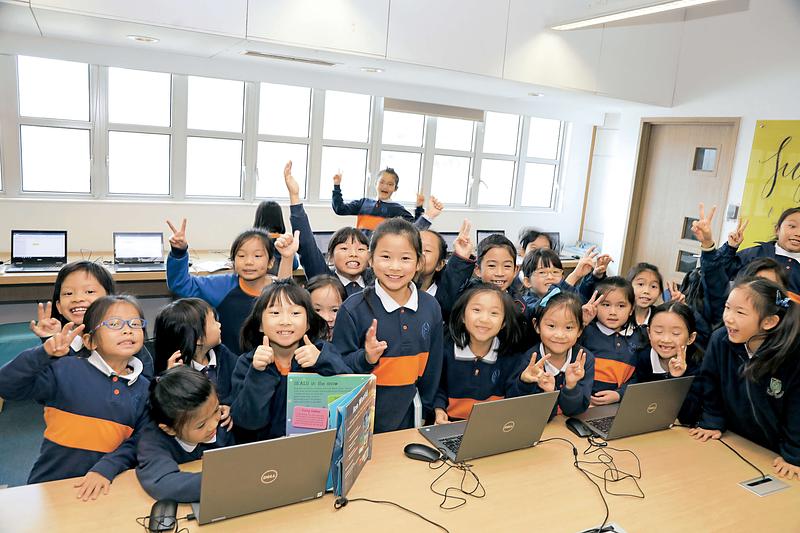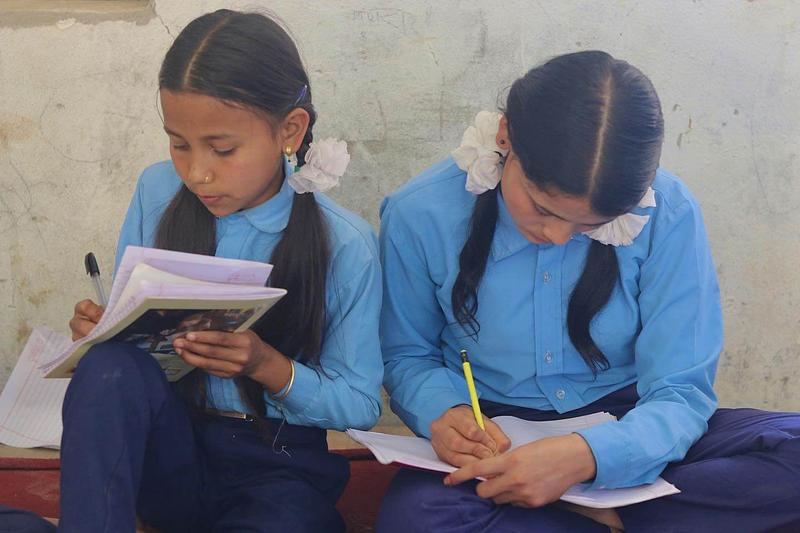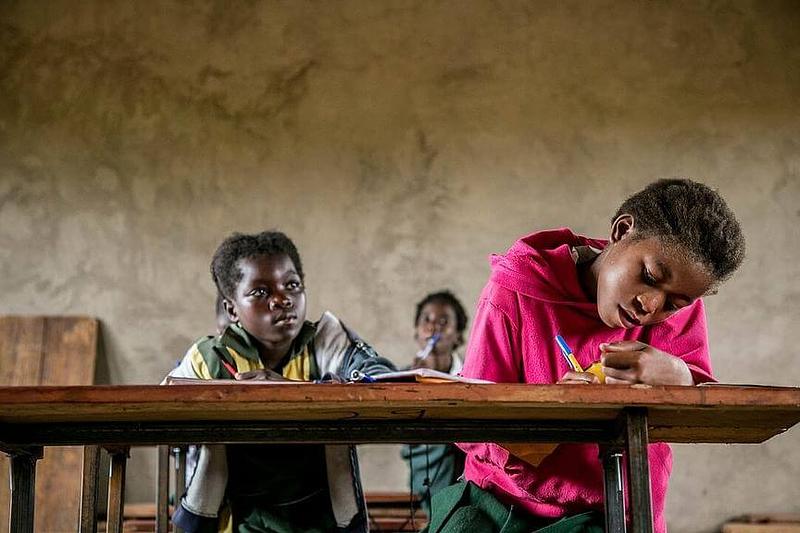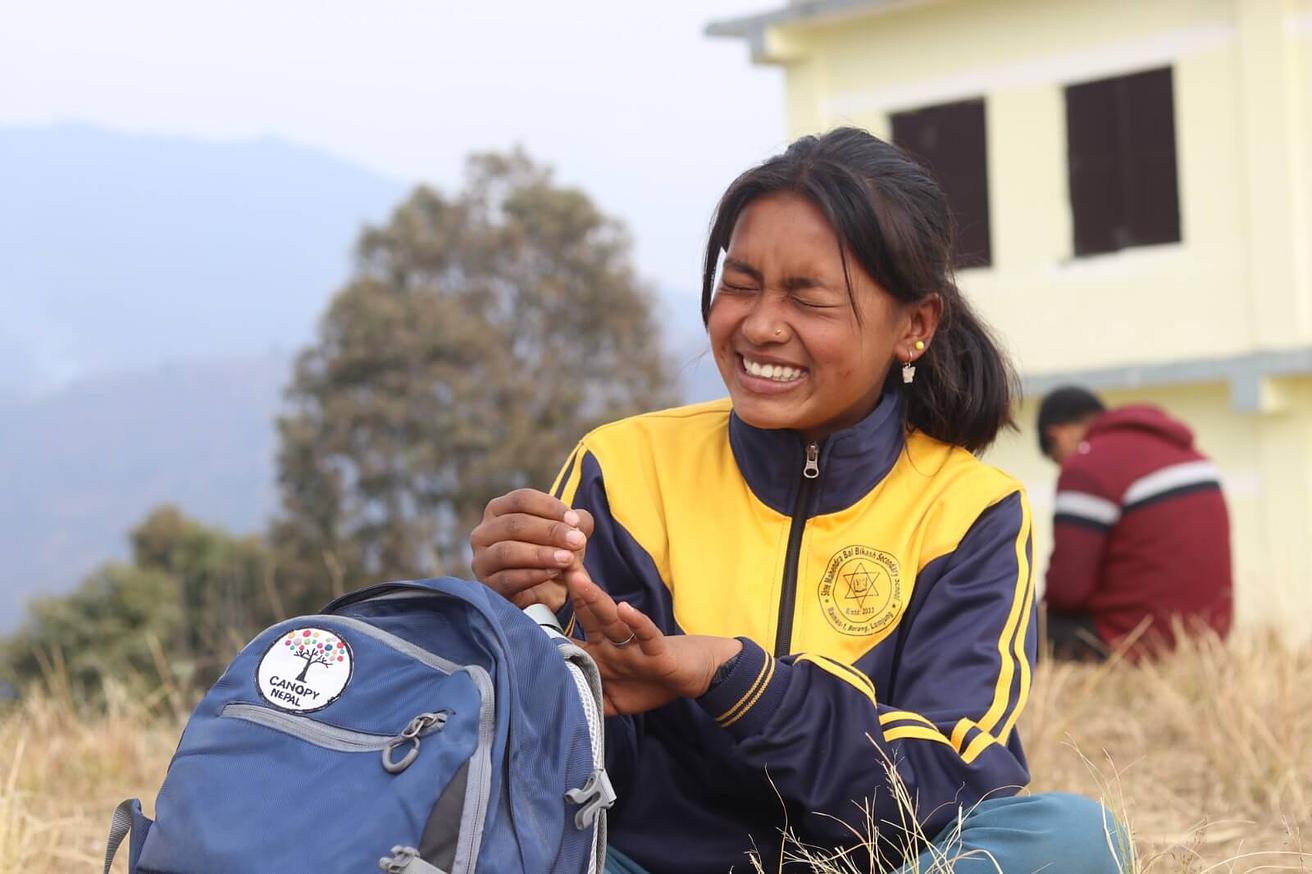Education isn't merely about transmitting knowledge; it's a vibrant tapestry interwoven with diverse threads of innovation, each contributing to the holistic growth of learners. In a rapidly evolving world, the demand for comprehensive skills transcends traditional boundaries, urging educational pioneers to redefine the approach to learning. The following innovations from the Hundred 2024 Global Collection explore different aspects of the entire educational network, each a distinctive thread, reimagining school as a holistic ecosystem nurturing the minds of tomorrow.
“Because the school system is very complicated… it would be hard to make a change. Every component influences and supports the others” - CoolThink@JC Team
One thread is how we approach problems. CoolThink@JC, an innovation born out of collaboration between MIT, The Education University of Hong Kong, City University of Hong Kong, co-created and funded by The Hong Kong Jockey Club Charities Trust. Paul Yau, senior manager at the Hong Kong Jockey Club, explains how CoolThink@JC aims to instil Computational Thinking into elementary school students in his city: “[We] developed an age-aligned Project- and Play-based curriculum and tools using Scratch, App Inventor and other Internet of Things and AI learning materials. The pedagogy associated with these materials and tools has clear learning objectives including appropriate amount of times for students to play, to think and to reflect in each lesson. More importantly, they are required to develop an app in each lesson to achieve what we called ‘Computational Action.’ They are not just thinking, but taking action to solve the problem.”

A classroom implementing CoolThink@JC
Originally a mindset to help develop coding skills, computational thinking has emerged as a key competence for 21st century skills: it entails problem solving skills, logical thinking, planning, creativity and innovation to overcome thorny obstacles. The project team used the same toolkit they teach the students to build a network to support the innovation. “At the very beginning of initiation of the programme design stage, we already realised that CoolThink@JC should be an integrated design with key components that would benefit every stakeholders in the ecosystem, including school leaders, teachers, parents, teacher associations, school sponsoring bodies, school infrastructure and digital devices upgrade…. Because the school system is also very complicated to make a system change, we believe without an integrated design and multiple components in one single project, it would be hard to make a change. Every component influences and supports the others,” Paul shares. Steering a ship as large as this innovation requires advanced planning, analysis and project management, exactly the skills that CoolThink@JC focuses on the most (though the students mostly think of it as play!).
All of the innovations in the Global Collection have complex theories of change - the ways in which they see their impact reverberating throughout the tapestry of education. And while CoolThink@JC focuses on changing education for a generation in Hong Kong, some innovations consider the threads that wrap around a single child.
“We support our scholars to grow into independent individuals, acting as a second set of guardians with their families.” - Angirash Karki
Many migrant students in Kathmandu, the capital of Nepal, face enormous challenges ranging from poverty to cultural and linguistic exclusion. Canopy Nepal applies a holistic lens to the traditional scholarship model and provides wrap-around services for its students - the organisation’s Executive Director Angirash Karki describes just how deep their support is: “When we select a scholar in our scholarship program, we plan for their holistic and long-term development with us. In most cases, we select scholars from the secondary level who stay with us till they finish their undergraduate and are appointed to an internship or a full-time position. We support our scholars with their educational support, tuition, uniform and stationery, nutritious meals, psycho-socio well-being, vocational training and workshops, parent and teacher support, career counselling, and job placement. We support our scholars to grow into independent individuals, acting as a second set of guardians with their families.” In order to adequately address the complex network of needs that affect their scholars, Canopy Nepal keeps its scholarship pool focused: to date, they have helped 111 students graduate that would otherwise have left formal education and are currently supporting an additional 86.

Canopy Nepal scholars completing homework
Yet Canopy Nepal understands that a wider focus can be helpful as well: they provide educational support to broader student populations through their Learners’ Hub, developing soft skills, communication, and independent learning in the schools where their scholars are enrolled. This programme not only furthers the broader goal of educational improvement in Nepal, but specifically aids Canopy Nepal scholars by helping them to share their stories and be better embedded in the fabric of their schools. What Canopy Nepal provides isn’t a safety net - it’s a shelter that has room for many.
Some innovations use education as the entry point to affect wider community change. That’s the approach that Impact Network took when looking to improve lives for children in rural Zambia. Their eSchool 360 model is one part of a broad spectrum of interventions, which began with a specific focus on teacher education. “Initially, our focus was primarily on supporting untrained teachers, and our e-learning curriculum served as a foundational guide for each lesson. As time has passed, there has been a shift in the local education landscape, with the local government now mandating teacher certification. Despite this shift, we have observed that new teachers continue to derive substantial benefits from our coaching and curriculum framework,” says Executive Director Reshma Patel. eSchool 360 Model develops and distributes, and provides training for lessons that use modern teaching practices, solar powered technology, and developmentally and linguistically targeted lessons. Randomised trials have demonstrated the innovation’s effectiveness and the Zambian government has begun a process to spread the training more broadly.
“During the construction of schools, community members contributed river sand and bricks towards the building” - Reshma Patel
Importantly, however, is that the Impact Network don’t take a top-down approach: they weave their pedagogical and logistic competencies with local knowledge, resources and expertise. “The majority of our local staff and teachers are deeply connected to these communities, many having grown up in similar or nearby locations. This perspective and personal investment are woven into their work and our organisation's ethos. Before constructing schools in these areas, we met with the community to better understand the demand for education and their vision for schools in their villages. During the construction of schools, community members contributed river sand and bricks towards the building,” Reshma tells us. And this centring of the school as part of the community means that they are able to provide further supports to community needs - not only are students receiving quality education, but the schools serve as hubs for other initiatives promoting clean water, gender equality, and environmental activism.

Inside a eSchool 360 Model classroom in Zambia
Through this exploration it's clear that the innovations showcased are more than isolated endeavours; they're interconnected threads in the fabric of holistic education. From Hong Kong's computational playground to Nepal's embrace of marginalised students and Zambia's community-centred approach, these innovations aren't just about education. They're about fostering resilience, empathy, and community engagement, beyond the boundaries of the classroom.
The tapestry of education is continually evolving, enriched by the collaborative efforts of educators, communities, and innovators worldwide. As these threads continue to intertwine, let's envision an educational landscape not limited by silos but strengthened by connections, nurturing learners equipped not just with knowledge but with the adaptability and empathy needed to thrive in an ever-changing world.
Want to learn more about impactful education innovations? Check out the 2024 Global Collection report.
Working on your own innovation? Submit your innovation to be considered for the next collection.
